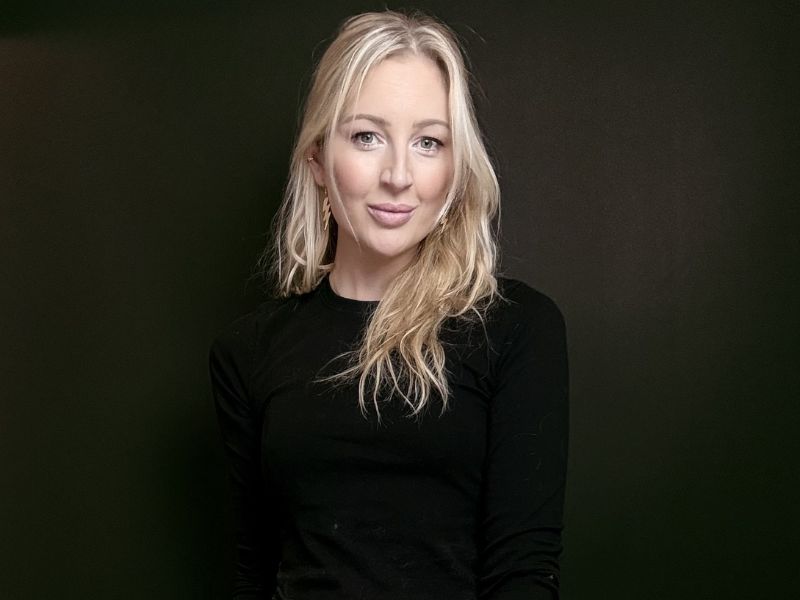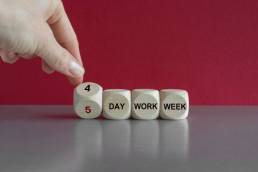Dr Liz Murray BCA(h) is a multi-award winning doctor, artist, health advocate and public speaker. Liz is a medical doctor by profession with over 10 years clinical experience having worked as a middle grade in A&E during the Covid pandemic.
After facing multiple complex health issues meaning she could no longer continue a career clinically as a doctor, Liz works to use her experience as doctor by profession and patient by experience to improve the support and awareness for patients whilst connecting with higher organisations to implement much needed change to patient services.
Dr Liz then went on to be the founder and Co-CEO of the UK charity Mortal And Strong building a centralised support system to help anyone navigate chronic health conditions in the prime of life; the first and only charity of it’s kind. Liz started an internationally followed health awareness campaign Scars of Gold putting the spotlight on Women’s Health issues using art alongside Co-Director and photographer Sammy Weston.
Alongside running the charity, Dr Liz is an ambassador for multiple health organisations including Patient Information Forum working to improve regulation and safe content of health information in the online space, Women’s Health Impact Network and a participant of UN Women UK for two consecutive years.
Liz continues to speak as a champion for encouraging people to live well despite having chronic health conditions, sharing her own experiences of having endometriosis, autoimmune disease and mobility issues. Liz is passionate about striving for health equity across all health conditions and all communities.
Tell us about yourself and your background.
I have a bizarre journey as an adult as at the age of 18 I became a medical student, studying medicine to become a doctor, and at the very same time I began my own health journey as a patient. Having qualified as a doctor at 24 I began focusing on Emergency Medicine but by this point I had had countless major surgeries having been in a wheelchair unable to walk, multiple miscarriages and was diagnosed with autoimmune disease and severe Endometriosis. Through my entire adult life I have always used as an expressive outlet and been passionate about producing artworks to explore health inequalities which led to being included in some prestigious exhibitions and winning awards. I have managed to have two wonderful children in spite of having secondary infertility and so am fortunate to have the challenges of being a working mother. It is only in the last few years that these seemingly contradictory life experiences have now found a way to have meaning and have massively influenced the direction of the work I do now.
Your journey from practising medicine to becoming a powerful advocate for women’s health is incredibly moving. What gave you the strength to take that leap and how did your personal health struggles guide that decision?
For so long I resented my own health challenges for making life seem harder, and for making it difficult to continue in a clinical role as a doctor. In recognising that I had control over my life and understanding the grief process that comes with chronic health issues I found a way to thrive in spite of these challenges. Once I recognised there was a valuable and rare insight into being both a doctor by profession and patient by experience I saw the potential for helping others using this unique insight. As I began working with people to help create change not just for people individually but with organisations on a larger scale I realised there is so much that can still be done and a real urgent need for bridging the gap between patients and organisations. Being able to turn my personal challenges into a purpose to help others has been cathartic and I am fuelled now by seeing how valuable the potential changes can be.
Living with complex conditions like autoimmune disease and endometriosis must have been isolating at times. What helped you stay connected to hope and how do you support others in finding that light for themselves?
There was a time when I hit a low point and was the most isolated – feeling broken and far from strong and not sure how I could rebuild a life for myself when the life I had envisioned wasn’t feasible because of my health. It was through online communities and a stranger on social media sharing her own toolkits for finding strength that I then found hope. As I used their toolkits and recovered I recognised the real value in sharing ‘survival stories’ and one person’s journey being someone else’s survival guide. This then became the grassroots, some 6 years ago now, for the campaign Scars of Gold and why I founded the charity Mortal And Strong.
You brought together over 150 volunteers for the Scars of Gold™ campaign. What did that sense of community and shared purpose mean to you personally, and how did it shape the campaign’s impact?
Once the campaign for Scars Of Gold was launched it quickly became an international viral success. I worked with co-director and photographer Sammy Weston and the two of us volunteered an entire year full time to travel the country and work with women with lived experiences of over 160 health topics, bringing in artists to produce works inspired by their stories. For the exhibition event we then wanted to continue to maximise potential impact and support and brought in a range of medical professionals and experts to present talks across 5 days on a range of women’s health topics. In total the campaign had around 150-180 people directly involved. Once people realised the unique nature of what we were doing and the genuine need for such holistic support and awareness the growth and impact snowballed. I was simply fortunate to have been able to turn my own trauma into an idea, but what the campaign became and how the charity is growing is entirely down to all the people involved – like pieces of a puzzle that with each individual part the picture (impact) is complete.
As both a doctor and a patient, you’ve seen healthcare from all sides. What do you wish more clinicians understood about the emotional and physical toll of women’s health conditions?
I have unfortunately experienced how the change in healthcare over the last 20 years has taken its toll on the patient experience and I have witnessed it from both sides. It is clear the increasing demands on the service and pressures mean that clinician’s don’t have the time needed to properly engage with patients. The lack of continuity seems to have had an impact on accountability which I feel is where women’s health is suffering – with the increase in reports of medical misogyny and gaslighting. Something which I am trying to really instil and encourage is recognition of listening to patients and understanding the impact on quality of life. A lot of what I do is about encouraging ways for patients to communicate their needs in a language that clinicians understand to help them to be ‘heard’ more clearly.
Scars of Gold™ created a space for stories often left unheard. What has the public response meant to you and how do you hope it shifts the way society talks about women’s pain and recovery?
The public response was beyond what we had hoped. There were so many levels to the campaign – the photography was highlighting the physical and representative scars to show the strength that is borne from our health journeys. The artwork captured the essence of the people behind the scars – as much to instil hope but to also show to the medical professionals that these are people with lives. The podcast shared the truths – the toolkits and the highs and lows and realities of what it is to experience life changing health conditions. Through the exhibition we had a diverse range of patients and medical professionals – the impact for me was best reflected by two different encounters. A woman brought her daughter who was going through chemotherapy to show her 100 examples of ‘what strength looks like’. Multiple medical clinicians left saying they had learnt a lot which will profoundly impact their clinical practice. This captures the essence of what we do with the charity – not just trying to provide support for the patients but using what we learn in the process to create actual change within the healthcare system.
You’ve embraced art as a form of healing and storytelling. How has creative expression helped you process your own experience, and why do you think it resonates so deeply with others?
I have always been an artist and after the Covid pandemic I was so deeply affected by working on the frontline in A&E and felt there was so much hidden from public view with regards to the reality of working in A&E. That was when I shifted my creative ‘muse’ to use art to share a message, with a purpose. I began winning awards and realised the power of art as a way for invoking an emotion. There is only so much that can be portrayed in words alone and art hits and lands differently with people. People are more open to seeing and listening, and it can connect on an emotional level to really invite thought in a way nothing else can. Encompassing this in the campaign alongside putting a face and a name on such a large scale really helped utilise every method to maximise impact.
Receiving the British Citizen Award must have been an emotional moment. What did that recognition mean to you, especially after everything you’ve overcome?
It was very overwhelming and quite a humbling experience. I genuinely don’t do the work to seek recognition, and the more work I do the more work I realise there is yet to be done so for me I feel like I still have so many years of work to do before I feel we have made real significant change. However I am learning to see the value in the recognition in helping awareness of the work and met some incredibly inspiring people at Westminster when receiving the BCA, which reinforced the fuel to know that there are many people out there all striving to improve our society in different ways which was really heartwarming.
If you could change one thing right now about how women’s health is understood or treated, what would it be and what can all of us do to be part of that change?
I work with the Patient Information Forum which is the only UK regulator for assuring the reliability of safe information for patients online. On of my major concerns at present as a medical professional is the rise of ‘women’s health’ awareness online. It is wonderful to see that women’s health is becoming an increasing focus of conversation, because the underlying inequalities are so real and in need of addressing; but we do have a precarious situation arising. The increase in growth of celebrity and influencer ‘women’s health advocates’ is shifting from raising awareness and sharing their stories to providing advice and information that isn’t reliable or safe. We absolutely need to do more to continue the conversation and focus of women’s health – but we as a society and as a collective need to ensure we are giving the platform for education and information to the right voices and not encouraging a trend of using ‘women’s health’ as a buzz word for clickbait and content. I am currently working with PIF to push regulation of online patient information to a legal framework and raise awareness and would encourage people to be vigilant about supporting reliable women’s health information and content from safe and trusted sources. There is also a lot of ‘talk’ about women’s health inequalities and people highlighting the issues, and we need to provide strength and support to those actively working to make real change which will ultimately improve the situation.
Looking back, what would you tell your 20-year-old self, at the start of your medical career, not yet knowing the journey ahead?
To bare with it. I have reflected on this a lot recently and through doing the Scars of Gold campaign I recognised a common impression from people who have experienced some of the most traumatic encounters a personal can face. So many people wouldn’t actually change anything. If I could go back I wouldn’t change anything despite how incredibly challenging it was at times. I went into medical school full of dreams and ambitions for how I wanted my career to look. It was through experiencing the grief of having that turned upside down by my health that then caused me to face what was happening to me and recognising just how many people experience that without support. Had I not encountered it all the way I did, I wouldn’t be where I am today. All of that experience is contributing to the growth of the charity I am part of – Mortal And Strong. Sometimes we don’t always realise it at the time, but through facing the harder times our perspective on things can change and sometimes this can be for the better.





